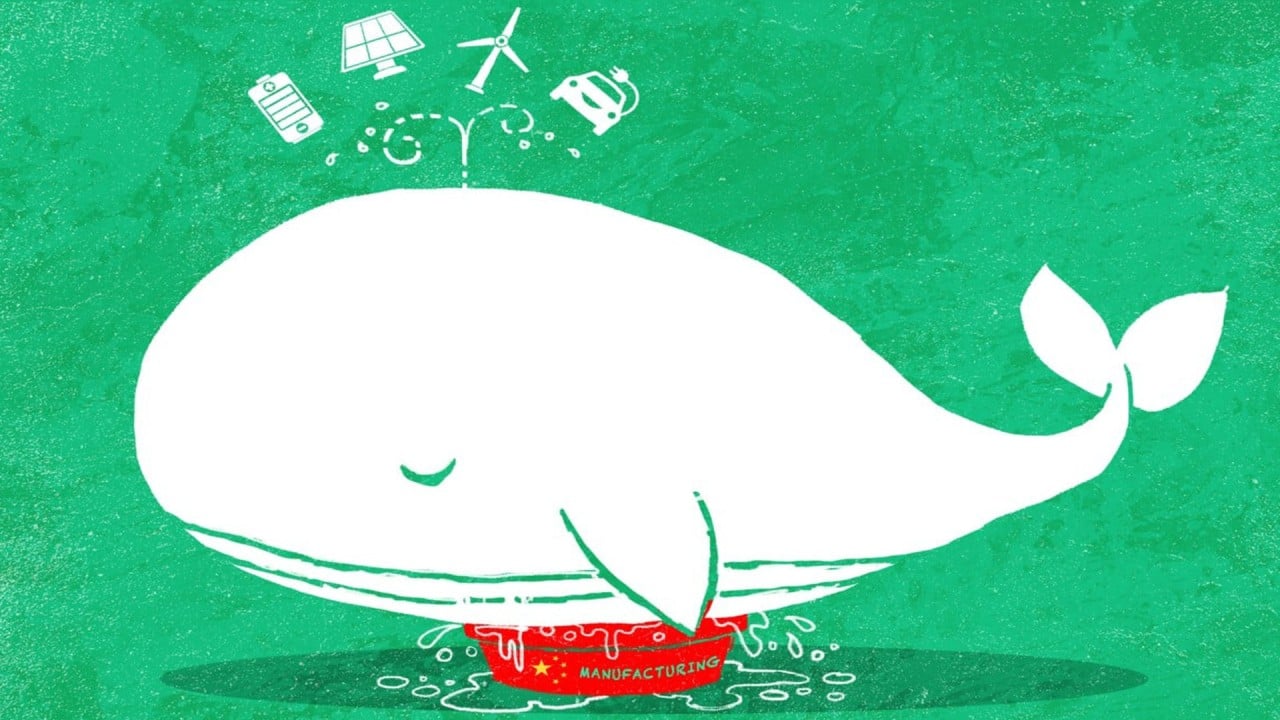
China leads improvements in fossil fuel engine efficiency to fill electric gap
- With vehicle electrification expected to take 10-20 years, Chinese manufacturers are breaking energy-saving records in an old technology
- Shandong-based Weichai Power’s commercial diesel engine achieves milestone while other carmakers abandon internal combustion model
Weichai Power marked a new industry milestone on Saturday, unveiling the world’s most efficient commercial diesel engine – with a thermal efficiency of more than 53 per cent – at the World Congress on Internal Combustion Engines in China.
The diesel engine developer and manufacturer, based in the eastern province of Shandong, is a leader in breakthrough technologies, such as high-expansion combustion and high-efficiency fuel injection, that underpinned the achievement.
Speaking at the opening ceremony, conference president Jin Donghan noted that internal combustion engines are the dominant driving force in land transport, engineering machinery and long-distance shipping.
They promise “the biggest potential” in promoting energy conservation and carbon reduction, said Jin, who is also the president of Tianjin University and a Chinese Academy of Engineering (CAE) academician.
Based on current estimates of Chinese diesel engine ownership, the new engine translates into annual fuel savings of about 31 million tonnes and a reduction in carbon emissions of about 97 million tonnes, according to a state-run newspaper.
The article, published on Monday by Science and Technology Daily, said the engine could slash fuel costs, estimating that the owner of a heavy-duty tractor covering 250,000km (155,343 miles) a year would save about 98,000 yuan (US$13,532).
CAE researcher Zang Jiyuan said that with most commercial vehicles still powered by diesel engines, and given that the transition to electric cars will take 10-20 years, “these savings are going to be big numbers”.
Zang pointed out that the production of commercial vehicles – such as trucks, buses and trailers – in China alone can be counted in the millions.
The technology could also have military potential, as almost all modern military vehicles, such as tanks, are currently powered by diesel engines, according to a scientist specialising in engine research at a mainland university.
While some countries are investing in related research, real electrification is not in the offing, the scientist said.
Since the inception of the diesel engine more than 120 years ago, scientists and engineers around the world have been striving to improve thermal efficiency – a key indicator of engine performance.
Thermal efficiency of diesel engines stagnated at around 46 per cent for a long time, despite international research efforts. The barrier was broken in 2020 by Weichai Power, which achieved a diesel engine with a body thermal efficiency of 50.23 per cent.
The company said the advancement would have uses beyond transport, including in construction machinery, agricultural equipment, ships and power generation.
China’s electric car boom is also contributing to the development of fossil fuel engine technology.
In 2020, Shenzhen-based BYD, the world’s leading electric car manufacturer and the second-largest producer of EV batteries, launched what it claimed was the most thermally efficient petrol engine then in production.
The engine, with a thermal efficiency of 43 per cent, takes advantage of electrification to eliminate the traditional front-engine accessory drive – belts and all – to further reduce wear and improve efficiency.
The scientist specialising in engine research said that the development of electric vehicles had “not directly led” to efficiency improvements in the internal combustion engine.
However, “the two are technologically beneficial, which in turn boosts the car industry”, said the scientist, who asked not to be named.
In contrast, some overseas carmakers are phasing out internal combustion engines and heading into an all-electric future.
According to a Nikkei report in 2022, Nissan intends to become the first major Japanese carmaker to make the break, announcing that it will stop funding their development in all of its major markets except the US and focus its resources on electric vehicles
Audi CEO Markus Duesmann told a German newspaper in 2021 that the manufacturer would “no longer develop a new combustion engine”, but adapt existing combustion engines to new emissions regulations.
Although Duesmann affirmed that “the future is electric”, he noted that demand for conventional engines will remain significant in certain regions of the world for some time to come.





